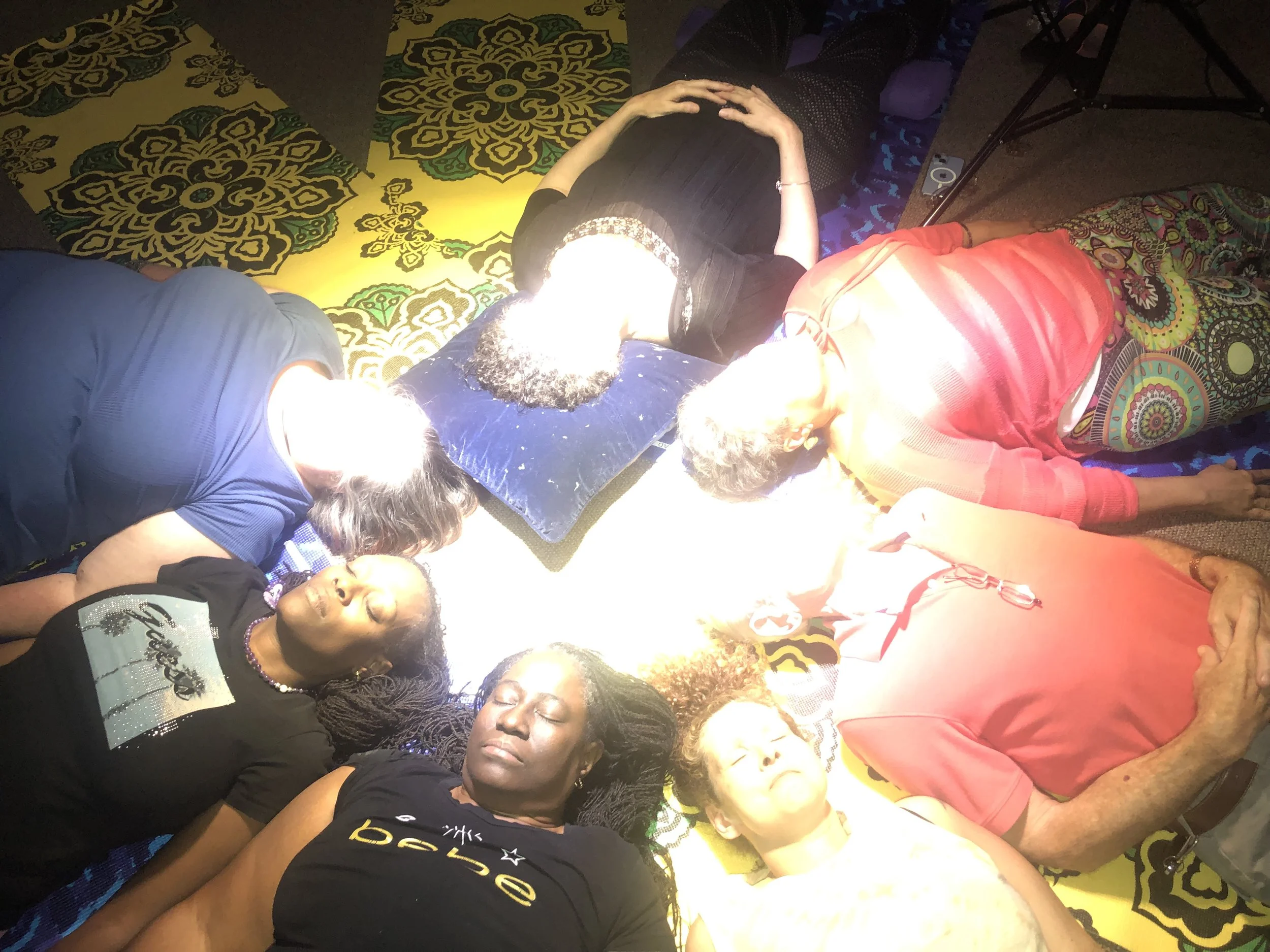Deep States NeuroMeditation is an advanced meditation style designed to help you break free from repetitive mental patterns and open the door to expanded states of consciousness, healing, creativity, and transformation. When our minds are stuck in cycles of rigid thinking and feeling, we often experience stagnation, anxiety, or depression. Deep States NeuroMeditation works by disrupting these patterns in a therapeutic context, allowing the nervous system to reorganize at a higher level.
This approach creates the psychological flexibility necessary for unlocking creativity, intuition, and well-being. Through a combination of innovative techniques and altered states of consciousness (ASC), you'll learn how to connect with subtle energies, gain insights into your inner world, and facilitate personal and spiritual growth.
Similar to Alpha-Theta Neurofeedback Training, Deep States NeuroMeditation is highly effective for promoting psychological healing, accessing subconscious material, and facilitating transformational experiences. This process can aid in reducing trauma-related symptoms, fostering emotional release, and enhancing creativity and peak performance.
Deep States NeuroMeditation is ideal for:
Those seeking to overcome mental stagnation and repetitive thought patterns.
Individuals interested in exploring altered states of consciousness without the use of substances.
Practitioners looking to deepen their intuition and spiritual connection.
Anyone eager to unlock creativity and gain insights into the workings of their mind.
Individuals addressing trauma, emotional blockages, or seeking personal growth through subconscious exploration.
Deep States Strategies
At this time, there is no self-paced online course available for the Deep States NeuroMeditation style, as this method often relies on advanced technologies and personalized guidance. However, we do offer live Zoom classes and in-person retreats for those interested in this transformative approach. Deep States NeuroMeditation combines cutting-edge technology, traditional meditation techniques, and powerful practices to facilitate expanded consciousness. Commonly used tools in this method include:
EEG NeuroMeditation: Learn to access specific brain states with EEG-guided meditation, enhancing your ability to enter deep states of consciousness. Similar to alpha-theta training, this fosters a hypnagogic state ideal for exploring subconscious material and healing trauma.
Stroboscopic Light Sessions: Use the roXiva RX1 light machine to guide your brain into deeply relaxing or psychedelic-like states through dynamic light patterns and sound.
SOMA Breathwork: A guided breathwork practice designed to quiet the mind and create a sense of blissful openness and receptivity.
Sound Baths: Immerse yourself in soothing vibrations and soundscapes to release tension and explore inner stillness.
Key Benefits
Break Old Patterns: Disrupt rigid mental habits and create space for new possibilities.
Access Subconscious Material: Tap into deep layers of the mind for emotional healing, creativity, and personal insight, similar to alpha-theta neurofeedback.
Expand Consciousness: Access profound states of awareness and altered perception.
Unlock Creativity: Enhance your ability to think outside the box and tap into your inner wisdom.
Foster Intuition: Strengthen your connection to subtle energies and your intuitive mind.
Facilitate Healing: Develop tools to process and release emotional and energetic blockages.
Start Your Journey
Ready to expand your consciousness and unlock your potential? Discover how Deep States NeuroMeditation can help you break old patterns, access subconscious insights, and align your mind, body, and spirit for lasting transformation.
A note about trauma and meditation: If you have experienced traumatic or overwhelming life events, certain meditation or relaxation practices can contribute to unmanageable effects and bodily sensations. Trauma survivors may have decided that they are not capable of meditation or that it’s “not right for them.” Fortunately, there are helpful ways to ensure that meditation instruction is trauma-informed, with an emphasis on grounding and on physical and emotional security. For more details, contact a provider near you.



